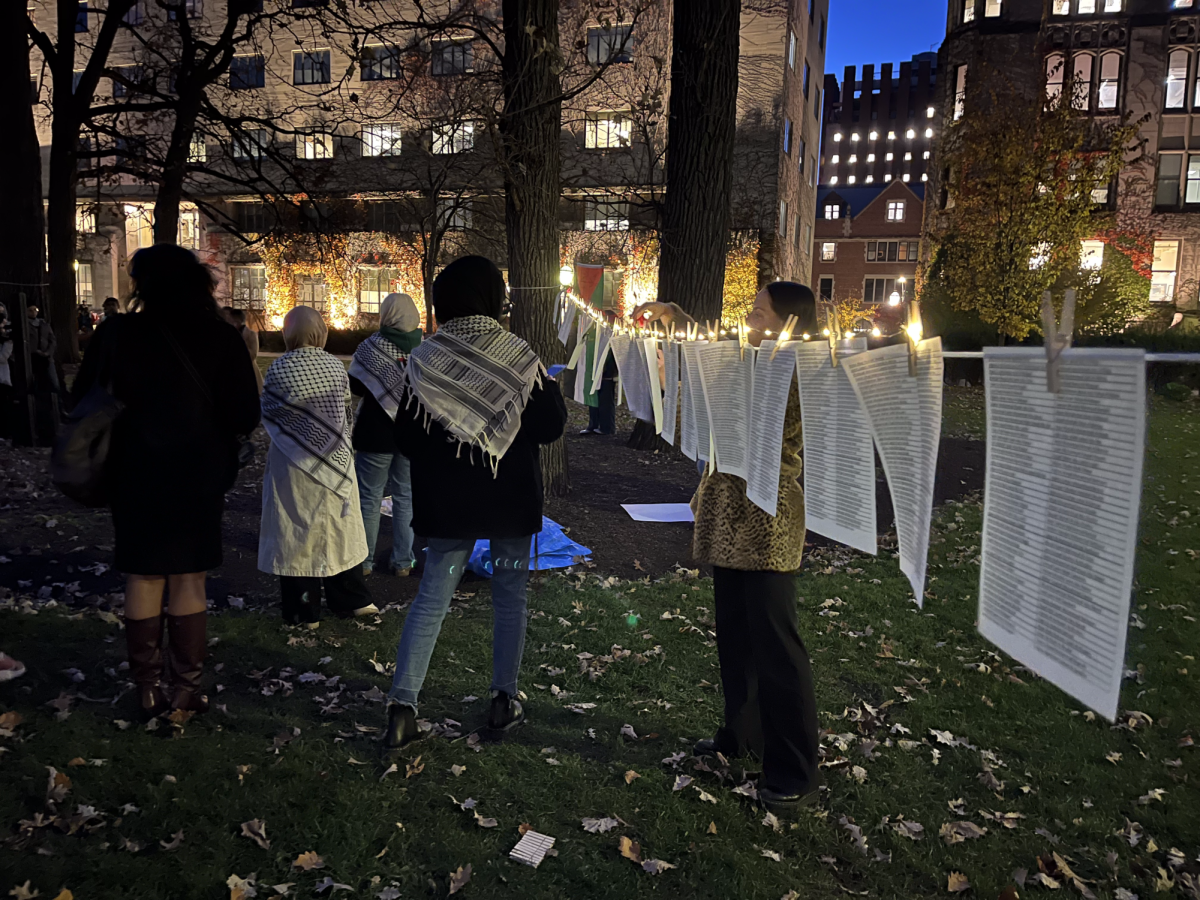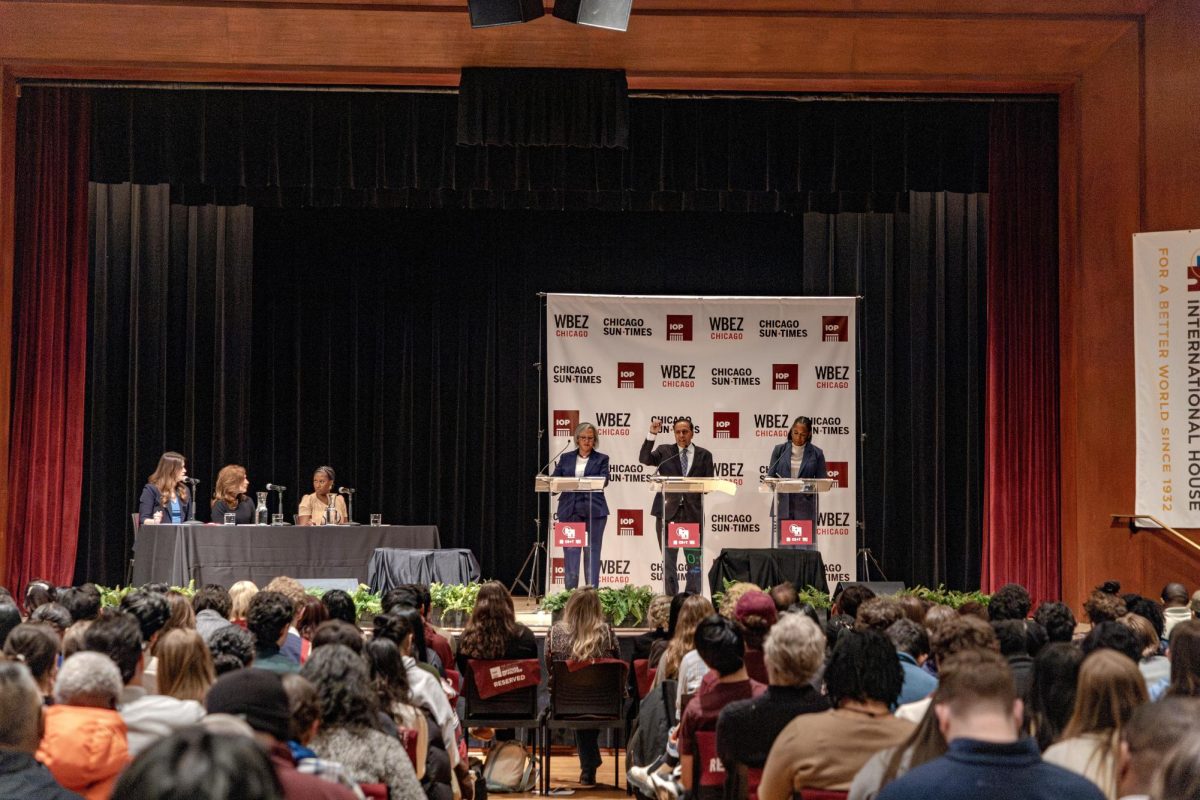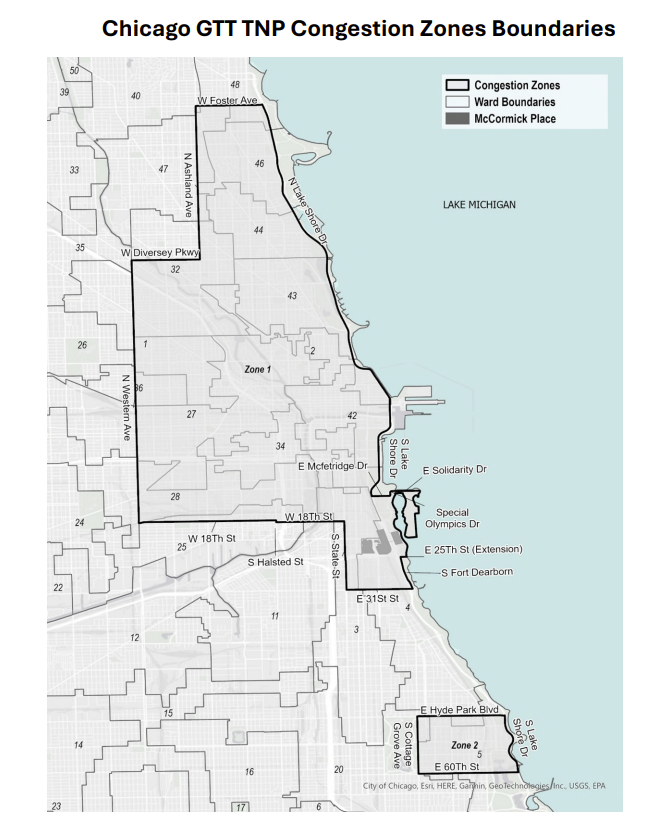UChicago Muslim Students Association (MSA) and Students for Justice in Palestine (SJP) organized a remembrance and prayer outside Kent Chemical Laboratory to commemorate Palestinian lives lost in the ongoing war in Gaza on November 16.
Speakers at the event included Palestinian students and community members, as well as members of the Council on American Islamic Relations (CAIR), a Muslim civil rights and advocacy group with regional chapters across the nation, and Orland Park Prayer Center (OPPC), a mosque in a suburb of Chicago.
Fourth-year Youssef Hasweh, a member of SJP and one of the students arrested on November 9 during a sit-in at the University admissions office, addressed the crowd as the event began.
“In Islam, killing one person is equivalent to having slain humankind entirely—an entire world of feelings, thoughts, dreams, and bloodlines,” Hasweh said. “We have lost over 11,000 worlds and 11,000 mankinds. This event serves as a reminder, as a collective moment of remembrance.”
Prior to the event, organizers hung strings and lights between trees on the quad and attached sheets of paper with the names of deceased Palestinians printed on them. During the speeches, some students began affixing roses above the names or laying them on the grass below.
Ahmed Rehab, the executive director of CAIR, then spoke against the United States’ alliance with Israel which he believed was not what the majority of Americans wanted.
“It isn’t because that’s what the people want. It’s because a certain elite in Congress, in the Senate, in the media, etc.,” he said.
Rehab also criticized the media’s portrayal of Palestinians, which he said purposefully obscured their humanity.
“Let us stand against dehumanization. Words matter. Images matter. Rhetoric matters,” Rehab said. “Let’s stand strong against hate.”
In an interview with The Maroon after the remembrance, Rehab spoke about a conversation he had with a Jewish student following the speeches. He said the student appreciated how his speech was clearly against antisemitism while also criticizing the Israeli government’s actions.
“I think if we root our positions on principles that are morally consistent, clear, courageous, and rooted in our common humanity, the distances will be made much shorter between peoples and their positions,” Rehab said.
One Palestinian community member, who works as a therapist, reflected in their speech on their struggle to help treat Palestinians’ trauma.
“You can’t call it post-traumatic stress because it is not ‘post’. It is never ‘post’. It is always within,” they said. “How are we supposed to tell people to heal? How am I supposed to look at somebody in Gaza right now and ask them, ‘How are you feeling?’ That sounds like the most absurd thing.”
Another Palestinian student denounced the University in their speech, criticizing it for declining to divest its endowment from weapons manufacturers and Israeli corporations.
“They are not complicit. They are active participants in our murder,” the student said of the University. “What this University seeks is an apology that I exist, I will not grant them that satisfaction.”
Hasweh echoed this sentiment in an interview with The Maroon. He expressed disappointment in the University over his arrest and misdemeanor charge.
“How can you ask me to continue to show up to class and try to fight to finish my degree when you, UChicago, gave me a criminal record before a degree?” Hasweh said. “An institution that was once my dream school has become my nightmare.”
One attendee of the remembrance, a fourth-year student at the College, spoke to The Maroon about their experiences on campus in the past few weeks.
“Somebody gave me a dirty look before. I was harassed the other day in an elevator,” they said. “It just reminds you that you’re not really safe and that there’s not much support to protect you from it.”
However, they said they appreciated how events like this remembrance emphasized Palestinian humanity and spirit.
“I think it’s a good way to remember the dead and honor them, and also put forth that even if you kill 11,000 people and martyr them all, you will not defeat the Palestinian spirit,” they said.
















learn history / Nov 30, 2023 at 9:14 am
“‘In Islam, killing one person is equivalent to having slain humankind entirely—an entire world of feelings, thoughts, dreams, and bloodlines,’ Hasweh said.”
lmao. Hey, Hasweh, what happened to the indigenous Jews of Medina in the 7th century? I guess those indigenous people killed by invading settler colonialists engaging in an imperialist project don’t count as “people” to you.